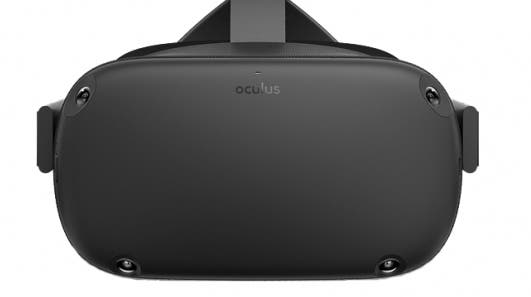Facebook's latest PC-powered VR headset is the enhanced Oculus Rift S
Higher-res screen, no external sensors.
Facebook has unveiled the Oculus Rift S, a replacement for its existing Rift virtual reality PC headset, featuring a number of notable changes to the older model, including a higher-resolution screen.
Like its predecessor, the Rift S is powered by a PC, meaning that it should support all games and apps that the current Rift does, on both the Oculus Store and Steam. Where it diverges, however, is in its various tech features. There's a new 80Hz 2560×1440 single LCD panel screen, for instance, higher than the original Rift's 90Hz duel OLED resolution of 2160x1200, but lower than the all-in-one Oculus Quest.
That's viewed through "next generation" lens technology similar to Oculus Go and Quest, helping to eliminate the current Rift's distracting "god rays". According to RoadtoVR, Facebook says the S' field-of-view is "slightly larger" than the original Rift.
Perhaps more notable, however, is that, unlike its predecessor, the Rift S doesn't require external tracking sensors. Instead, it uses five onboard cameras - two at the front of the headset, one on each side, and one at the top - to achieve a similar effect. As a result, the Rift's familiar Touch controllers sport the Quest's slight redesign, repositioning the tracking ring to the top where it can be seen by the headset.
As for the headset itself (said to be "a little" heavier than the existing Rift), it features a padded, halo-like support system in place of the original's strap. It's also ditched physical lens separation adjustment options in favour of a software solution, and has jettisoned the Rift's headphone set-up, with audio now delivered through the strap - although a 3.5mm jack is provided, should you want to use your own headphones. There's also a 5m tether.
According to Facebook, the Rift S features similar CPU and GPU requirements to its predecessor, and requires a DisplayPort and USB 3.0 connection to your PC to function. Its lack of standalone sensors, however, means that the new headset won't be as much of a USB hog.
The current Oculus Rift is being phased out and replaced by the Rift S, which will cost $399 USD (roughly £300) and is scheduled to launch this "spring".


